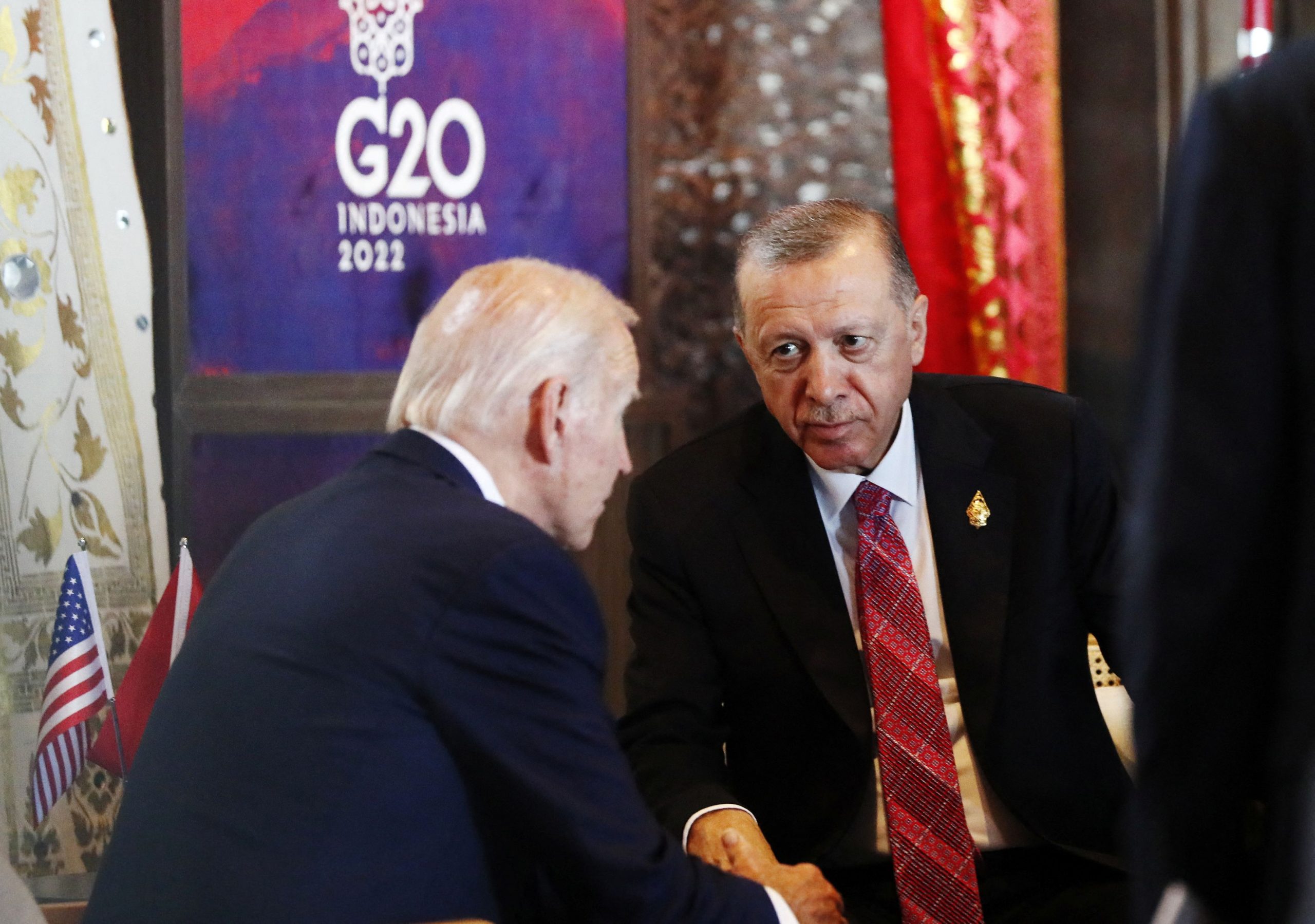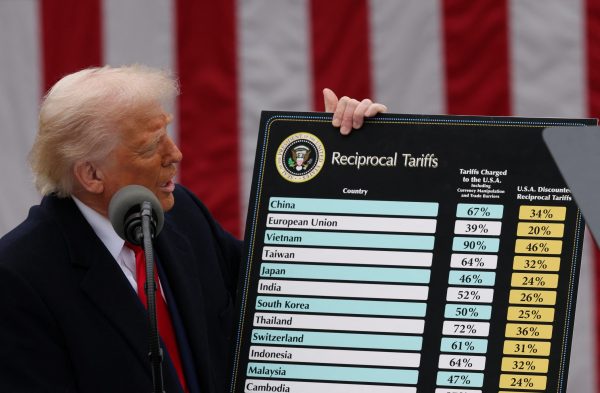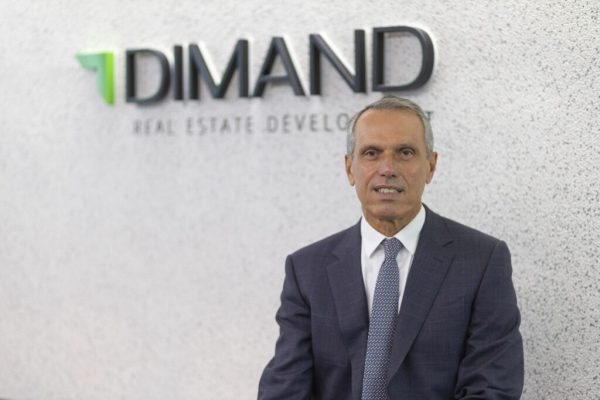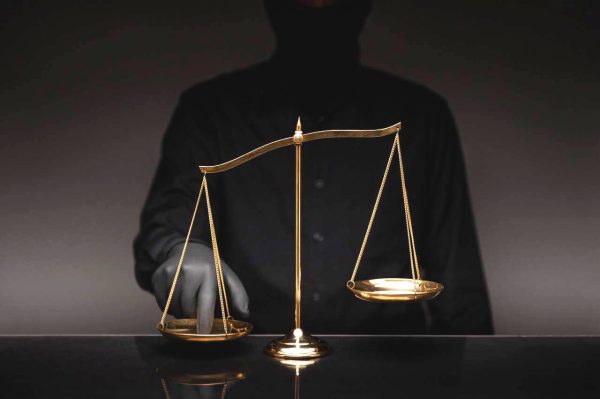
The Turkish press consistently insists on the narrative of the “Greek threat” with barbs on Greece’s armaments program, attempting to create a sense of “war in waiting”. Clearly guided by the statements of the Turkish president, Recep Tayyip Erdogan, who raises his voice dangerously, insisting on using Athens as the “useful enemy”.
An attitude that no one can deny is exploited by certain circles who believe that they are gaining by investing in tension in Athens as well, despite the persistent calls of the government for “calm”.
In Turkey, the media are waging a “war”, giving weight to Greece’s weapons program, noting that it is “trying to gain air superiority against Turkey”.
“Tayfun is the missile that drove the Greeks crazy,” Erdogan has repeatedly claimed. With the escalation of the rhetoric to be not only a campaign trump but a strategic political choice of Ankara.
With the State Department limited to expressing its “regret”…
A crisis lasting 3.5 years
The statement of Foreign Minister, Nikos Dendias is indicative, who, at a political event organized by his office on Monday in Glyfada, noted that there have been serious crises with Turkey in the past, however there had always been dialogue to add that today we are going through a permanent crisis over 3.5 years.
Dendias, during his presence at the Solidarity Conference for Ukraine in Paris on Tuesday, chose to send a message to both Ankara and the international community.
“Greece is working for something much bigger, for something absolutely necessary for our national survival: for the prevalence in the world community of a narrative of protection of the independence and territorial integrity of all states. So that every war, every threat of war, every revisionism is considered by the world community to be a sacrilegeous crime. And that the world community has the obligation to always stand by those who are threatened by bigger neighbors who do not respect international law,” he said characteristically.
With the dialogue between Athens and Ankara now being a demand and not a given as it should be.
Athens wants low tones
In Athens, however, both military analysts and diplomatic sources keep their voices down and clearly avoid war or “hot incident” scenarios. Even if they do not exclude the possibility of an “accident”.
The Turkish Foreign Minister, Mevlüt Çavuşoğlu, insisted from the floor of the Turkish Parliament on provocative rhetoric, adopting harsh language and characterizing the issue of the Aegean islands and “militarization” as a national issue of Turkey. He also denounced Athens for its initiatives to annul the new Turkish-Libyan memorandum on hydrocarbons.
Ankara in step with Tripoli
He noted that Turkey and Libya moved together to respond to the Greek reactions and the relevant letter of the Foreign Ministry to the UN, as he said “we transferred our joint response to this letter to the UN immediately afterwards”.
And if politicians in a pre-election period tend to strive more for tension than for normalization, since they consider “enemies” useful for their audience, diplomats appear more realistic.
Always toeing the line of their country. But leaving some pockets of optimism for a return to normality.
“Zero Sum” Policies
The discussion that took place at the Balkans & Black Sea Forum 2022, which takes place in Athens, between the Turkish ambassador in Athens, Burak Ozugergin, and the diplomatic advisor of Alexis Tsipras, Vangelis Kalpadakis, is indicative.
Kalpadakis agreed with the position expressed by Ozugerkgin in his initial statement that the energy security necessary for our time is not promoted by “zero-sum” policies.
He noted, however, that Turkey implemented exactly such policies in the energy sector with the “Blue Homeland” strategy, the signing of the Turko-Libyan memorandum and the Oruc Reis seabed surveys in 2020.
While he asked the Turkish ambassador if he believes that the proposal supported by the Turkish president for an EU Conference of the Eastern Mediterranean has a prospect of being implemented and in what way – according to Turkey – we could reach a Conference that is not based on”zero sum” logic.
Ozugergin, for his part, defended Ankara’s positions, saying that Turkey did not design the Seville Map and was not the one that started – as he mentioned – the story with Oruc Reis.
Dialogue away from pre election rhetoric
Zero sum exists when one side falls on the scale and the other rises, said Ozugergin, however, calling on the two sides to look forward since “each country has done what it had to do” to emphasize that he does not believe “that one side should lose for the other to win.”
According to Ozugergin there is hope for a “proper” demarcation in the Eastern Mediterranean. He showed, as Cavusoglu has said several times, the agreements that Greece made with Italy and Egypt as examples that can “work” mutatis-mutandis in the case of Greece and Turkey as well.
“If the tones go down. If we don’t talk from ‘balconies’ but at the table” as he characteristically said. Essentially showing the elections in the two countries
He explained that Ankara will not remain “idle” as long as energy routes are developing under its nose, especially where Turkey considers its territorial waters, continental shelf and EEZ.
Talks are the only way out, but under what conditions
However, according to Ozugergin, “the only way to overcome this obstacle is to talk to each other. And I know the allergy of the Greek side to talks about sovereignty issues. I understand that. But if Greece has finally ‘broken the chains’ and is talking with Italians and Egyptians and if it has now abandoned positions that created the problem with Turkey in the first place then maybe in the future, after the elections or soon enough then maybe we will find the courage to talk about our problems”.
Leaving a window for de-escalation, perhaps, after the election. However, the question remains regarding the dialogue and whether the Turkish leadership really wants talks and the resolution of issues. And if he can accept terms that will exclusively benefit Turkey.
Latest News

Trump Tariffs Jeopardize Growth: Piraeus Chamber of Commerce
The tariffs, aimed at reducing the U.S. trade deficit, are expected to have both direct and indirect effects on the European economy

EU Condemns Trump Tariffs, Prepares to Retaliate
As tensions escalate, the EU is expected to continue negotiations with Washington while preparing for potential economic retaliation.

The Likely Impact of Trump Tariffs on Europe and Greece
Trump tariffs are expected to negatively affect economic growth in the Eurozone while Greece's exports could take a hit.

Motor Oil Results for 2024: Adjusted EBITDA of 995 mln€; Proposed Dividend of 1.4€ Per Share
Adjusted EBITDA for 2024 was down 33% yoy. The adjusted profit after tax for 2024 stood at 504 million euros, a 43% decrease from the previous year

Cost of Living: Why Greece’s 3% Inflation Is Raising Alarm
Greece appears to be in a more difficult position when it comes to price hikes, just as we enter the era of Trump’s tariffs.

Fitch Ratings Upgrades the Four Greek Systemic Banks
NBG’s upgrade reflects the bank’s ongoing improvements in its credit profile, Fitch notes in its report, including strong profitability, a reduction in non-performing exposures (NPEs), and lower credit losses

Trump to Announce Sweeping New Tariffs Wednesday, Global Retaliation Expected
With Trump's announcement just hours away, markets, businesses, and foreign governments are bracing for the fallout of one of the most aggressive shifts in U.S. trade policy in decades.

Inflation in Greece at 3.1% in March, Eurostat Reports
Average inflation in the eurozone settled at 2.2%, compared to 2.3% in February

Greece’s Unemployment Rate Drops to 8.6% in February
Despite the overall decline, unemployment remains higher among women and young people.

Jerry Kalogiratos Highlights Key Role of Energy Transition and Data Demand in LNG Outlook
Energy transition and the prospects of LNG were discussed at Capital Link’s 19th Annual International Maritime Forum, during a panel discussion with Jerry Kalogiratos (Capital Clean Energy Carriers Corp.)
























![ΕΛΣΤΑΤ: Αυξήθηκε η οικοδομική δραστηριότητα κατά 15,6% το Δεκέμβριο [πίνακες]](https://www.ot.gr/wp-content/uploads/2025/03/DSC9655-2-1024x569-1-90x90.jpg)
















 Αριθμός Πιστοποίησης
Αριθμός Πιστοποίησης